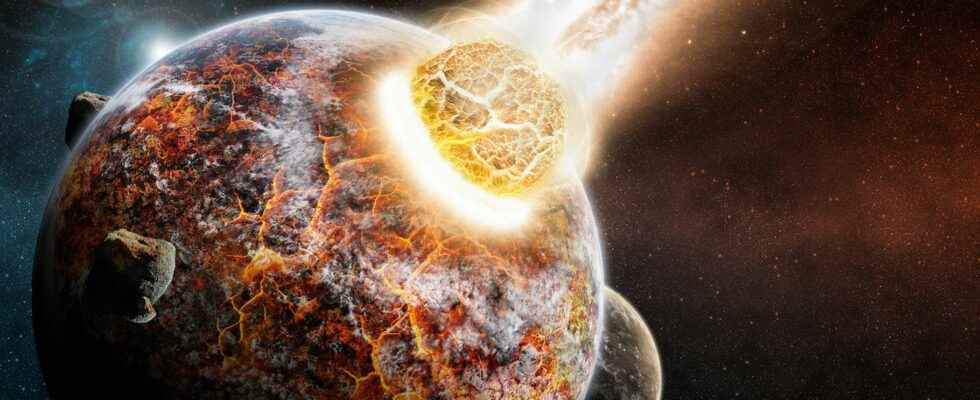The question of the formation of the first continents is still and always strongly debated. In question, the difficulty of finding elements dating back more than 4 billion years. However, a new study has brought up to date the hypothesis of an origin linked to major meteorite impacts.
You may also be interested
[EN VIDÉO] A billion years summarized in 40 seconds: plate tectonics Researchers have modeled the movements of tectonic plates over the past billion years.
If today the amount of continental crust remains relatively stable and represents about 30% of the earth’s surface, it has not always been so. Originally, our planet was made up of just one huge ocean of magma. It’s from this ocean of rock in merger that the first continental crust formed, giving rise to the first continents. If we know today that continental growth is mainly associated with the volcanism of the zones of subductionthe mechanisms involved in the formation of the first masses continents are still not clearly determined, the tectonic plates in which the subductions take part being non-existent before 3.8 billion years ago. However, we found some minerals typical of continental crust, zirconswhich show a much higher age: more than 4 billion years.
Several theories to explain the formation of the first continental crust
There are thus several theories to explain the formation of the first continents from the ocean of primitive magma. Some scientists suggest that it all starts with training of a proto-crust of composition very different from that of our current continents, but which could have served as a “base” for the generation of the first continental crust. Others involve giant meteorite impacts.
Although proposed for several decades, this second hypothesis had never been clearly supported by elements solid. In new study published in Naturea team of scientists from the University of Curtin (Western Australia) is however bringing this theory up to date by providing new elements.
The first continental rocks formed under the heat of meteorite impacts?
As with other studies on the origin of the first continents, Tim Johnson and his colleagues based themselves on the study of zircons from the craton from Pilbara, Western Australia. The cratons are indeed the regions of the Earth the oldest and the most likely to contain traces, although extremely tenuous, of the origin of the first continental crust. After analyzing the chemical composition of zircons, and in particular the proportions of the different isotopes oxygen, the researchers suggest that the first continental rocks would have formed from an episode of surface melting that progressed to the depth, and not the reverse. However, this discovery is in agreement with the effect produced by a major meteorite impact.
The formation of the first continental rocks could therefore have been initiated in the regions impacted by meteorites giants, like the one that caused, billions of years later, the disappearance of the dinosaurs. This type of catastrophic event was far from rare 4 billion years ago. The Earth was then still very intensely bombarded.
The scientists now wish to strengthen their theory by analyzing zircons from other regions of the globe, in order to show that it is indeed a global mechanism and not a local specificity.
Interested in what you just read?
